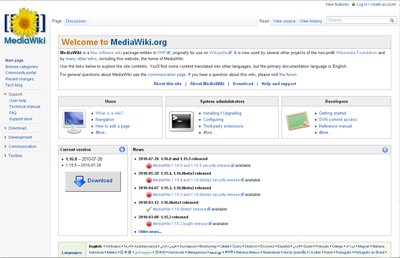Wikis are simple software packages that allow people to co-edit information and to make that information sharable, either within a password-protected space or a wholly public one. A “wiki” means “fast” in Hawaiian and was used by Ward Cunningham for this type of software. Cunningham was the originator of a wiki back in 1995 (see Wikipedia’s WikiWikiWeb entry).
The power of wikis
The power of a wiki resides in being able to evolve a knowledge structure that changes based on the available information. The interlinked pages, the search functions, and the “random page” generator enables people to find what they need but also to interact with the contents in serendipitous ways.
Wikis are also unusual in that they allow virtually anyone to edit the contents (although the access may be limited to those who have to pass through an authentication layer if password protection is required). Many wikis contain the broad range of mainstream multimedia: text, imagery, links to videos and audio files, and simulations.
MediaWiki
A well-known open-source software is MediaWiki, most well-known for being the underlying wiki structure for Wikipedia (www.wikipedia.org), which is available in a number of languages.

Continue reading “Spotlight: Open-source MediaWiki for shared knowledge creation” →

